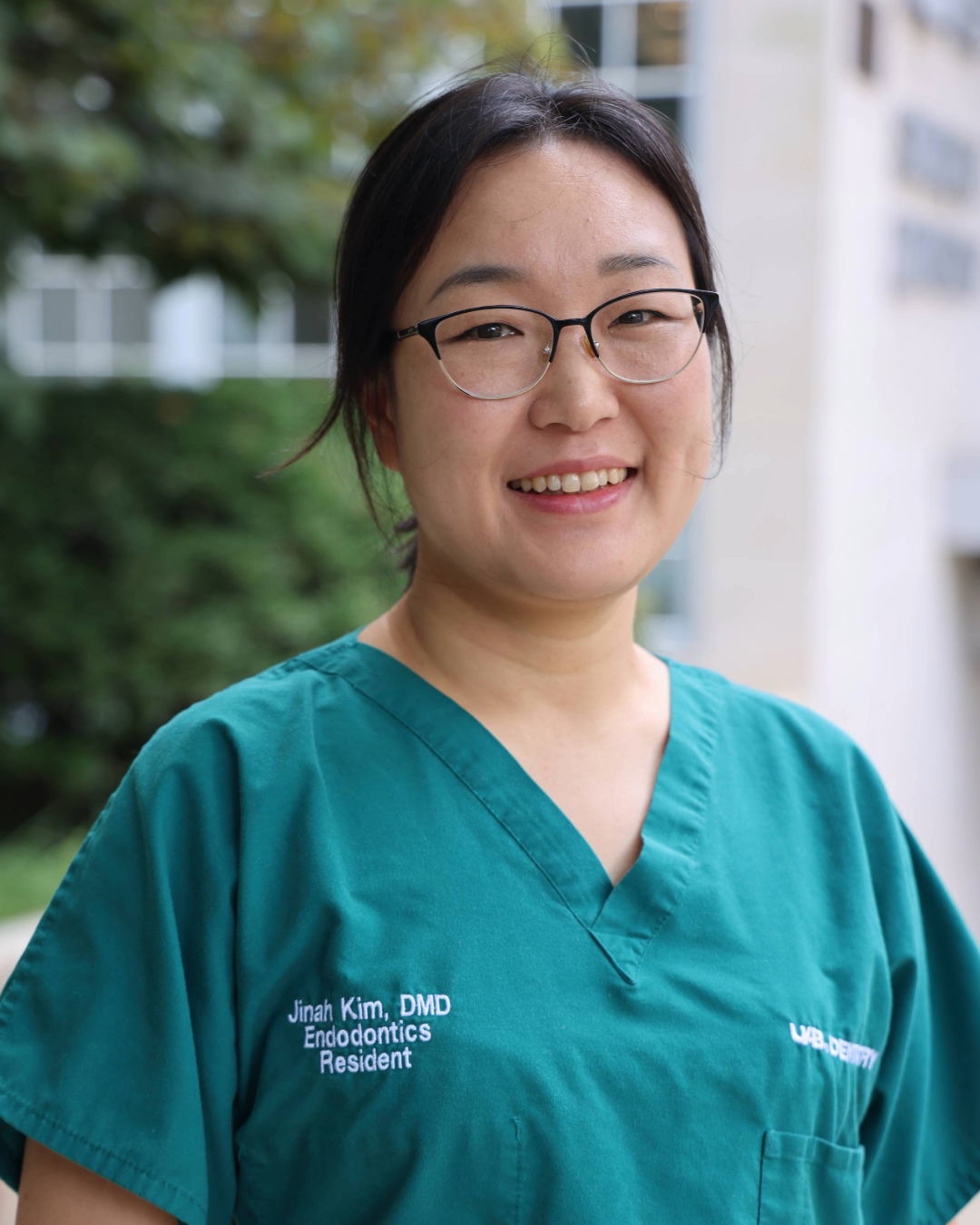 After 16 years of peering into neurons, Jinah Kim, MS, PhD, DMD, was ready for a change. So she began peering into patients’ mouths instead.
After 16 years of peering into neurons, Jinah Kim, MS, PhD, DMD, was ready for a change. So she began peering into patients’ mouths instead.
Kim devoted nearly two decades to neuroscience research, driven by a deep commitment to understanding the brain and improving lives. Along the way, she conducted research at Johns Hopkins University, earned her PhD at Northwestern University, and continued her work at MIT, where she worked from 2014 until 2020 on therapeutic ways to treat autism.
“The research side is amazing, but it can take years (to see results), and I spent all my days under the microscope looking at neurons,” Kim says. “After 16 years — even though the neuroscience research was meaningful — I felt a deep longing to provide direct help to my community while connecting with people. My husband is an ordained Methodist minister, and we both share a passion for serving others.”
During her time at MIT, Kim became friends with several people in the dental field. So when she began considering a career change, Kim says she shadowed a few dentists and “fell in love” with the profession.
“With dentistry, you can instantly help people and see the results, and you can have more of a relationship with the community,” Kim says. “I love working with people, so to be able to help them hands-on is very rewarding.”
Kim attended dental school at the University of New England in Maine. While there, Kim says she found her passion for endodontics because the complicated root canal systems fascinated her, and endodontics can help people deal with pain right away. So, she decided to pursue that field of dentistry as her second career.
In 2023, a year before graduating from dental school, Kim attended the American Association of Endodontists convention in Chicago, where she heard a presentation given by University of Alabama at Birmingham School of Dentistry professor Ashraf Fouad, D.D.S., M.S.
“He talked about evidence-based treatments and all the modern techniques taking place in endo,” Kim says. “That interested me, because I want to provide evidence-based treatments for patients. I got to meet Dr. Fouad afterward, and he told me about the (UAB SOD) endodontics residency program. I came for an interview and loved it.”
So after receiving her dental degree last year, Kim added the UAB SOD to her resume. She is currently midway through a two-year residency program, where she has gained extensive experience with advanced endodontic technologies and evidence-based approaches to preserving natural teeth through a comprehensive range of treatments, including root canal therapy, dental trauma management, and endodontic surgery.
“With her academic credentials, she essentially could have written her ticket to any dental program she wanted. We were fortunate that she selected UAB,” Fouad says. “Our program has a lot of didactic courses, and she is very advanced when it comes to reading the literature and summarizing what people have done as far as research and methodologies that result in advances in endodontology. She has a high aptitude for learning and synthesizing that information.”
Kim says once she completes the residency next year, she hopes to start working as an associate in an existing endodontology office before becoming an owner or partner of a practice. But Kim also is already thinking about another possible career shift 20 or so years from now.
“While I’m practicing, I plan to dedicate part of my time to educating the next generation of endodontists as a way of giving back to the field.” Kim says. “And then after I finish practice, eventually go to full-time teaching.”